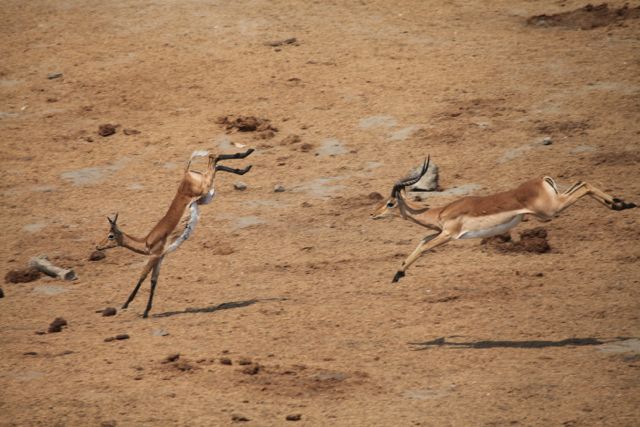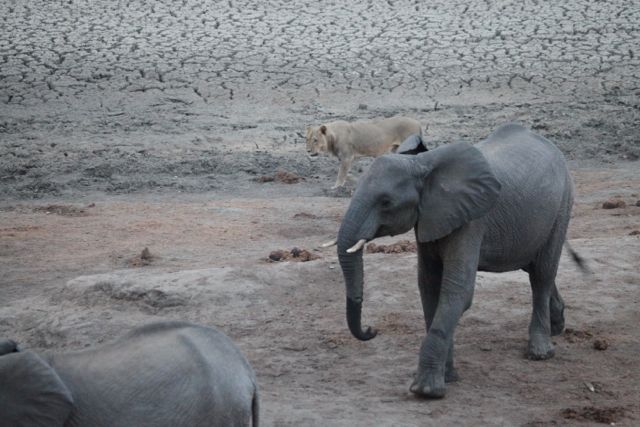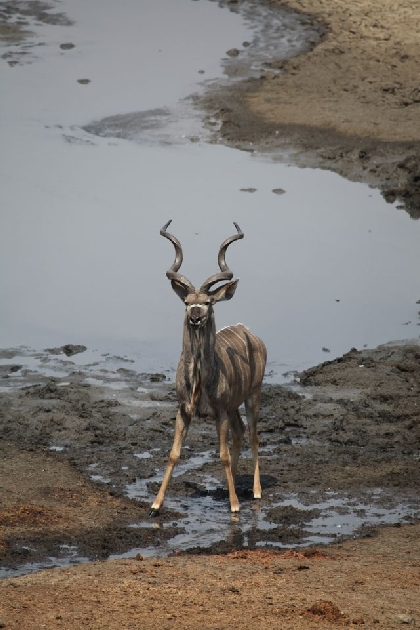I’m tired but happy. I’ve counted 14 different species, and there are literally hundreds of animals spread out before me, cropping the fresh emerald grass that is sprouting through the black ash left by a veld fire that tore through here a week ago. Zebras are braying everywhere, and between the jostling herds are rare species – roan, sable, tsessebe and a handful of eland. Last night more than 100 elephants ghosted through to drink at the three springs on the plain.

Where am I? Not in Tanzania, not Botswana, not Kenya. I’m in Hwange National Park, taking part in the annual game census organised by Wildlife and Environment Zimbabwe, formerly the Wildlife Society of Zimbabwe.
The game count has become the focal point of the travel calendar for my wife and me. This year’s was our 13th, and it’s a wonderful, unique experience that’s accessible to ordinary people.
Teams of volunteers assemble at Hwange’s three rest camps – Main, Sinamatella and Robins – just before the last full moon of the dry season, usually in late September or early October. Coordinators then dispatch the teams (typically two to four people) to waterholes, hides and pools in otherwise dry riverbeds across Hwange. Once in place, the idea is to stay put for 24 hours, from midday to midday, and to count and (if possible) sex anything that comes along. The full moon provides surprisingly good light at night, and if the sky stays clear, as it did this year, a fairly accurate count can be made.
The Hwange game count has been running since 1972 and is the longest continuous wildlife census in southern Africa. Results are tabulated in a professional report that is available to national parks and researchers. It’s particularly useful for keeping tabs on rare and endangered species such as African wild dog (painted wolf) and cheetah.

Zimbabwe has had good rains in recent years, but last year’s wet season was short and the effects are visible as we drive through the park. Hwange’s flagship viewing hides at Nyamandlovu and Masuma overlook teeming herds of game, but water around our base camp, at Robins in the northwest of the park, is in short supply.
That’s bad news for Hwange’s elephant population (estimated at between 30 000 and 50 000), and at several waterholes, we see elephants that have died of exhaustion. The flip side of this sad sight is that predator numbers are excellent; we see lions on six of the seven days we are here. Also, with wildlife clustering around the remaining water points, we know we’ll have a good count.

Our coordinator has assigned us to one of my favourite of Hwange’s hidden gems – the vlei behind the abandoned Deka Private Camp, way out to the west of Robins on the Botswana border. Driving through kilometre after kilometre of dry golden grass and mopane trees reduced to toothpicks by hungry elephants, a first-time visitor might think that there are few animals left in the park. This is a mistake.
Hwange is dry, and many of its waterholes are pumped, but there are also numerous natural seeps and springs, and these are where the animals seek sustenance when the temperature hits 40 degrees and the wind sucks the last of the moisture out of the remaining vegetation.

Deka Vlei is one such place. When we arrive, it’s like a mini Serengeti snapshot, with plains game covering the open savanna, shimmering in the heat. We set up our two Land Rovers on a rise and put up an awning to protect us from the worst of the sun. But there’s a breeze blowing, so it’s bearable by day and chilly by night.
Taking it in shifts, the four of us sit out the long night, and at five in the morning, a male lion starts roaring. He doesn’t pass us, but friends counting from the veranda of the old Deka camp, a kilometre from us, see his pride of 14 lionesses and cubs.
For a nominal membership and game count fee, I’ve been allowed to experience something magical, sitting under a full moon in the middle of the bush with only my wife and a couple of friends, contributing in a small way to something that we hope will be of use to someone.
For more information on the Hwange game census, contact Tony via his website www.tonypark.net
To comment on this story: Login (or sign up) to our app here - it's a troll-free safe place 🙂.![]()






